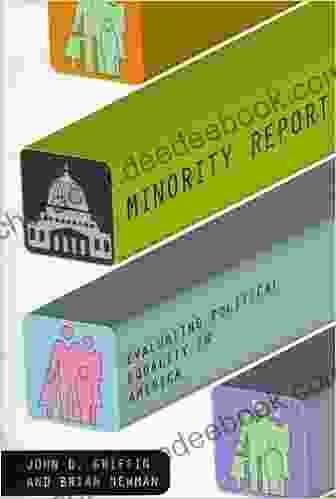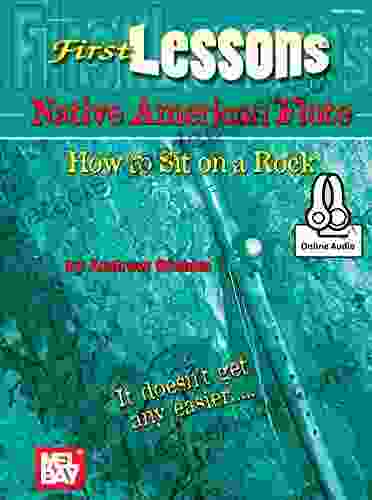Evaluating Political Equality in America: An Examination of American Politics and Political Participation

Political equality is a fundamental principle of American democracy. It is the idea that all citizens have an equal say in the political process, regardless of their race, gender, socioeconomic status, or other characteristics. However, the extent to which political equality exists in America is a matter of ongoing debate.
This article will explore the concept of political equality in America, examining the historical development of voting rights, the role of political parties, and the impact of race, gender, and socioeconomic status on political participation. It will argue that while progress has been made, significant barriers to political equality persist, and that further efforts are needed to create a truly inclusive and equitable political system.
The right to vote is a cornerstone of political equality. In the early days of the United States, only white male property owners were allowed to vote. Over time, however, the franchise was gradually expanded to include all citizens, regardless of race, gender, or socioeconomic status.
5 out of 5
| Language | : | English |
| File size | : | 2974 KB |
| Text-to-Speech | : | Enabled |
| Screen Reader | : | Supported |
| Word Wise | : | Enabled |
| Print length | : | 240 pages |
| Lending | : | Enabled |
The following is a timeline of some of the key milestones in the history of voting rights in America:
- 1787: The Constitution is adopted, granting the right to vote to white male property owners.
- 1870: The 15th Amendment is adopted, prohibiting states from denying the right to vote based on race.
- 1920: The 19th Amendment is adopted, granting women the right to vote.
- 1965: The Voting Rights Act is passed, prohibiting states from using poll taxes or other discriminatory practices to prevent African Americans from voting.
Political parties play a central role in American politics. They provide a way for citizens to organize and advocate for their political views. They also play a key role in nominating candidates for office and mobilizing voters.
However, political parties can also be a source of inequality. For example, the two major political parties in America, the Democrats and Republicans, are often divided along racial and socioeconomic lines. This can make it difficult for candidates from marginalized communities to get elected.
Race, gender, and socioeconomic status continue to be major factors in political participation in America.
- Race: African Americans and Latinos are less likely to vote than white Americans. This is due to a number of factors, including historical disenfranchisement, poverty, and discrimination.
- Gender: Women are less likely to hold elected office than men. This is due to a number of factors, including sexism, discrimination, and family responsibilities.
- Socioeconomic status: People with lower incomes are less likely to vote than people with higher incomes. This is due to a number of factors, including lack of time and resources.
Despite the progress that has been made, significant barriers to political equality persist in America. These barriers include:
- Voter suppression: Voter suppression is any effort to prevent eligible voters from casting their ballots. This can include things like gerrymandering, voter ID laws, and purging voter rolls.
- Discrimination: Discrimination can take many forms, including racial profiling, voter intimidation, and unequal treatment by election officials.
- Lack of resources: People with lower incomes are less likely to have the time and resources to participate in the political process. This can make it difficult for them to register to vote, get to the polls, and learn about the candidates.
Political equality is a fundamental principle of American democracy. However, the extent to which political equality exists in America is a matter of ongoing debate. While progress has been made, significant barriers to political equality persist, and further efforts are needed to create a truly inclusive and equitable political system.
5 out of 5
| Language | : | English |
| File size | : | 2974 KB |
| Text-to-Speech | : | Enabled |
| Screen Reader | : | Supported |
| Word Wise | : | Enabled |
| Print length | : | 240 pages |
| Lending | : | Enabled |
Do you want to contribute by writing guest posts on this blog?
Please contact us and send us a resume of previous articles that you have written.
 Page
Page Chapter
Chapter Genre
Genre Reader
Reader E-book
E-book Magazine
Magazine Newspaper
Newspaper Paragraph
Paragraph Sentence
Sentence Glossary
Glossary Bibliography
Bibliography Foreword
Foreword Preface
Preface Synopsis
Synopsis Manuscript
Manuscript Tome
Tome Bestseller
Bestseller Classics
Classics Narrative
Narrative Biography
Biography Dictionary
Dictionary Thesaurus
Thesaurus Character
Character Resolution
Resolution Librarian
Librarian Catalog
Catalog Archives
Archives Study
Study Scholarly
Scholarly Lending
Lending Reserve
Reserve Journals
Journals Special Collections
Special Collections Interlibrary
Interlibrary Literacy
Literacy Study Group
Study Group Thesis
Thesis Dissertation
Dissertation Awards
Awards Reading List
Reading List Stanley Ritchie
Stanley Ritchie Meenakshi Veeraragavaprabu
Meenakshi Veeraragavaprabu William R Mincks
William R Mincks Jack O Donnell
Jack O Donnell Ruth Krauss
Ruth Krauss Aldous Huxley
Aldous Huxley K E Priyamvada
K E Priyamvada Study Guide Edition Kindle Edition
Study Guide Edition Kindle Edition Brayan Gonzalez
Brayan Gonzalez Ramcharan Kakarla
Ramcharan Kakarla Martina Meier
Martina Meier Jon Ward
Jon Ward Hector Borlasca
Hector Borlasca Nina Montgomery
Nina Montgomery Chitra Sankaran
Chitra Sankaran Natalie Keller Reinert
Natalie Keller Reinert Andrew Monaghan
Andrew Monaghan Alec Sharp
Alec Sharp R J Socrates
R J Socrates Emily Nelson
Emily Nelson
Light bulbAdvertise smarter! Our strategic ad space ensures maximum exposure. Reserve your spot today!

 Miguel NelsonUnraveling the Enigmatic Life of a Salaryman's Wife: The Salaryman Wife Rei...
Miguel NelsonUnraveling the Enigmatic Life of a Salaryman's Wife: The Salaryman Wife Rei...
 Travis FosterSalt in Eastern North America and the Caribbean: A Historical and Cultural...
Travis FosterSalt in Eastern North America and the Caribbean: A Historical and Cultural... George OrwellFollow ·15.6k
George OrwellFollow ·15.6k Aldous HuxleyFollow ·5.7k
Aldous HuxleyFollow ·5.7k Danny SimmonsFollow ·19.5k
Danny SimmonsFollow ·19.5k Vladimir NabokovFollow ·5k
Vladimir NabokovFollow ·5k Alex ReedFollow ·9.6k
Alex ReedFollow ·9.6k Stephen KingFollow ·17.8k
Stephen KingFollow ·17.8k Bernard PowellFollow ·9.8k
Bernard PowellFollow ·9.8k Dean ButlerFollow ·8.7k
Dean ButlerFollow ·8.7k

 Ronald Simmons
Ronald SimmonsHow Do Cities Work? Let's Read and Find Out!
Cities are...

 Tom Clancy
Tom Clancy25th European Symposium on Research in Computer Security...
<p>Guildford,...

 Lawrence Bell
Lawrence BellHow We Decide: Cognitive Behavior in Organizations and...
Organizations are...

 E.M. Forster
E.M. ForsterOver 60 Little Masterpieces To Stitch And Wear:...
Embark on a Creative...

 Douglas Foster
Douglas FosterUnveiling the Educational Treasure: CGP KS2 Geography:...
In the ever-evolving educational...
5 out of 5
| Language | : | English |
| File size | : | 2974 KB |
| Text-to-Speech | : | Enabled |
| Screen Reader | : | Supported |
| Word Wise | : | Enabled |
| Print length | : | 240 pages |
| Lending | : | Enabled |










